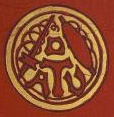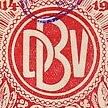Related Research Articles

The German Olympic Sports Confederation was founded on 20 May 2006 by a merger of the Deutscher Sportbund (DSB), and the Nationales Olympisches Komitee für Deutschland (NOK) which dates back to 1895, the year it was founded and recognized as NOC by the IOC.
The General German Trade Union Federation was a confederation of German trade unions in Germany founded during the Weimar Republic. It was founded in 1919 and was initially powerful enough to organize a general strike in 1920 against a right-wing coup d'état. After the 1929 Wall Street crash, the ensuing global financial crisis caused widespread unemployment. The ADGB suffered a dramatic loss of membership, both from unemployment and political squabbles. By the time the Nazis seized control of the government, the ADGB's leadership had distanced itself from the Social Democratic Party of Germany (SPD) and was openly cooperating with Nazis in an attempt to keep the organization alive. Nonetheless, on May 2, 1933, the SA and SS stormed the offices of the ADGB and its member trade unions, seized their assets and arrested their leaders, crushing the organization.
The General Commission of German Trade Unions was an umbrella body for German trade unions during the German Empire, from the end of the Anti-Socialist Laws in 1890 up to 1919. In 1919, a successor organisation was named the Allgemeiner Deutscher Gewerkschaftsbund, and then in 1949, the current Deutscher Gewerkschaftsbund was formed.
The Neue Musikzeitung is a magazine focused on classical music.

The Union of Miners of Germany was a trade union representing miners in Germany.
Reichsvereinigung der Deutschen Gewerkschaften was a trade union centre in the First Czechoslovak Republic. The organization had its headquarters on Krakovská street 11 in Prague. Initially the Reichsvereinigung grouped all the main German nationalist, or völkisch, trade unions in the Sudetenland. As of 1921, the affiliates of the Reichsvereinigung claimed to have 49,500 members. By the end of 1928, the organization claimed to have 51,500 members. The Reichsvereinigung was a supposedly apolitical body for German workers.
Verband deutscher Gewerkschaften was a German Nazi trade union centre in Czechoslovakia. The organization was formed in 1929, by eight unions that broke away from the Reichsvereinigung der deutscher Gewerkschaften. At the time of the founding of Verband deutscher Gewerkschaften, its affiliates claimed a combined membership of 46,700. The organization had its headquarters in Ústí nad Labem.
The German Tobacco Workers' Union was a trade union representing people in the tobacco manufacturing industry in Germany.

The German Clothing Workers' Union was a trade union representing people involved in making clothing in Germany.

The German Hat Workers' Union was a trade union representing hatters in Germany.

The German Agricultural Workers' Union was a trade union representing agricultural and forestry workers in Germany.

The German Textile Workers' Union was a trade union representing workers in the textile industry in Germany.

The German Union of Saddlers, Upholsterers and Portfolio Makers was a trade union representing leather goods and upholstery workers in Germany.
The German Leather Workers' Union was a trade union representing workers involved in tanning and glovemaking.

The German Construction Workers' Union was a trade union representing building workers in Germany.
The Central Union of Bakers and Confectioners was a trade union that played a significant role in representing workers in bakeries and related trades in Germany.

The German Furriers' Union was a trade union representing fur workers in Germany.
The Union of Saddlers and Portfolio Makers was a trade union representing workers involved in making saddles, bags and wallets.
The Union of German Restaurant Workers was a trade union representing workers in hotels and restaurants in Germany.
Walter Draeger was a German composer and music educator. Er war Professor an der Staatliche Hochschule für Theater und Musik Halle and the Hochschule für Musik Franz Liszt, Weimar. In 1955, war er Mitinitiator der ersten Hallische Musiktage.
References
- 1 2 Winters, Fritz (1931). Deutscher Musiker-Verband. ADGB. p. 381. Retrieved 1 June 2020.
- ↑ Nathaus, Klaus (2016). Made in Europe: The Production of Popular Culture in the Twentieth-Century. Routledge. ISBN 978-1317637417.